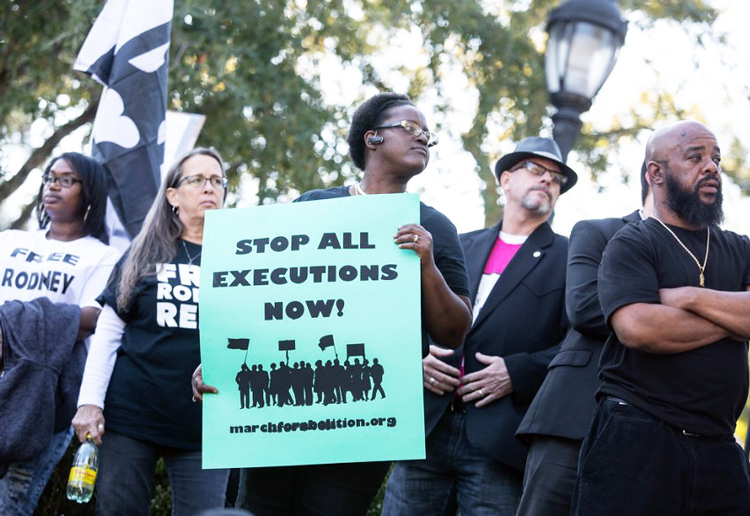John Henry Ramirez is scheduled to be executed by lethal injection at the Texas State Penitentiary in Huntsville Sept. 8, the third execution there this year.
Ramirez filed a federal suit Aug. 10 after prison officials denied his request to have his pastor, Dana Moore of the Second Baptist Church, pray with him in the death chamber and lay hands on him as he dies. Ramirez’s attorney filed for his execution to be postponed while the issue is litigated.
The U.S. Supreme Court halted the execution of Willie B. Smith III in Alabama in February after prison officials denied his right to have his pastor with him. In 2019 the court stayed the execution of Patrick Murphy in Texas when the state decided to bar his Buddhist spiritual adviser from the room.
In 2008 Ramirez was convicted of stabbing store clerk Pablo Castro to death seeking money to buy drugs when he was 20. He took $1.25 from the dying clerk’s pocket.
During his trial, he opposed letting family members testify before the jury about how his mother had been stabbed by her husband in front of him when he was a child, his drug use at the age of 12, and his discharge from the U.S. Marines for manic depression. Ramirez instructed his court-appointed lawyers to discontinue all efforts to persuade the jury to spare his life.
In prison Ramirez has become a voracious reader, writes poetry, draws and writes letters to supporters. He complains about the conditions imposed on people on death row. “In seg[regation] you have no human contact, can’t attend classes/church/work,” he wrote in 2015. “My routine consists of waking up, washing up, going to rec, then coming back to the cell, going to the shower and then coming back to the cell, then just killing time till the next day when I’d do it all over again.”
Ramirez’s execution has been postponed twice — in 2017 when he asked for a new lawyer after his attorney failed to file an appeal for clemency and in 2020 during the COVID-19 pandemic.
Six more executions are scheduled in Texas this year. There are some 2,550 death-row inmates in federal, state and military prisons today.
Prisons want to try nitrogen
Because more and more drug companies refuse to provide death rows with murderous chemicals, three state prison systems — in Alabama, Mississippi and Oklahoma — are making plans to put inmates to death by pumping nitrogen into their gas chambers, progressively depriving inmates of oxygen.
The Alabama Department of Corrections “declined to describe even in general terms what it has built,” reported The Associated Press Aug. 10, “including whether it is a room or an apparatus in the existing death chamber — and an estimated timeframe for completing the protocol.”
Because of the difficulty today of getting deadly chemicals, and because of growing revulsion at clear instances of pain and suffering by inmates executed by lethal injection, more states are seeking alternatives, including poison gas, electric chairs and firing squads. The Justice Department has changed its protocols to allow the federal death row in Terre Haute, Indiana, to use all these execution methods.
Arizona prison officials earlier this year announced they were planning to use hydrogen cyanide for executions, the same gas employed by the Nazis in Auschwitz during the Holocaust. Jewish organizations spoke up in outrage. “While there can be no doubt about its effectiveness — the Nazis used it to kill millions of innocent Jews — it is that very effectiveness as an instrument of genocide that makes it utterly inappropriate for use by a civilized state,” the American Jewish Committee said June 7.
There is growing opposition to the death penalty among working people and an increasing number of state governments have abolished it.
A 2019 Gallup poll reported that a majority of people — 60% to 36% — oppose use of the death penalty in murder cases. And only 9% of people polled in the U.S. this year think that a firing squad is humane.
“The death penalty is a weapon of terror the capitalist ruling class wants to have at the ready to intimidate the working class, and vanguard fighters, in the years ahead as resistance to its rule grows,” Osborne Hart, Socialist Workers Party candidate for Philadelphia district attorney, told the Militant. “The U.S. rulers incarcerate a higher percentage of the population than any other country in the world, overwhelmingly working class and disproportionately Black.
“The Socialist Workers Party fights for total abolition of the death penalty.”


